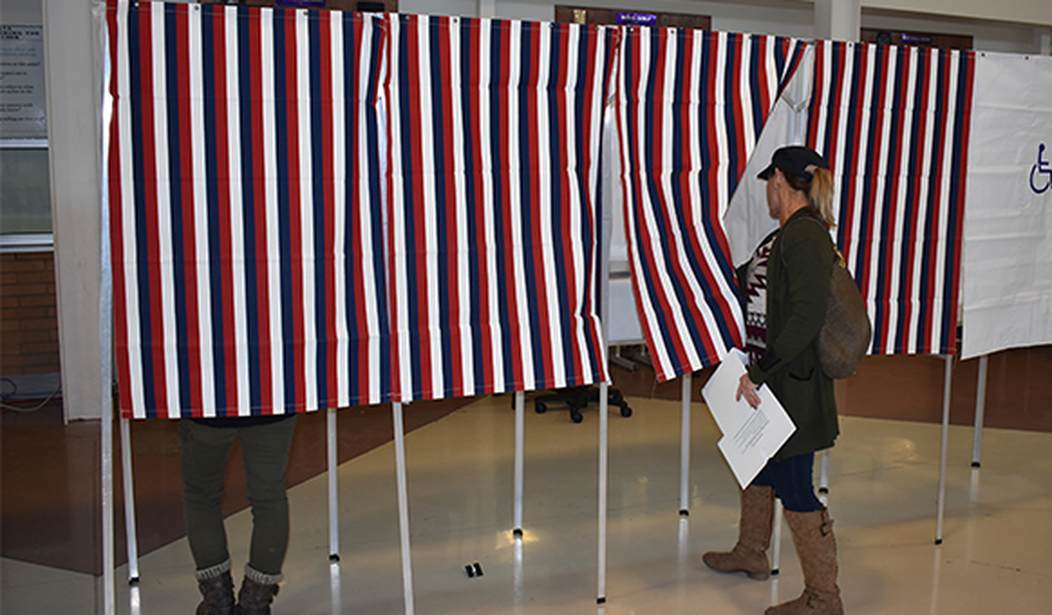There will be primaries and run-off elections in eight states today — the first after the Dobbs decision ended Roe v. Wade. And while almost all GOP candidates are pro-life and all Democratic candidates are pro-abortion, there are other questions that need to be resolved that will impact the November midterm elections.
Will the Democrats’ strategy of attacking Republicans who pose a severe threat to their candidates and elevating Republicans whom they see as “extreme” actually work?
Illinois is Exhibit A in this experiment in electoral tomfoolery with Richard Irvin, the attractive black ex-mayor of Aurora, the state’s second-largest city, running as a Republican. He is the choice of the GOP establishment and has a strong law-and-order record.
The party and billionaire donor Ken Griffin poured $50 million into Irvin’s campaign. But Democrats poured an equal amount into trashing Irvin and — uniquely — disguising attack ads on Irvin’s pro-Trump primary opponent, state senator Darren Bailey.
Bailey was “attacked” for being strongly pro-life, pro-Trump, pro-gun, and anti-Gov. J.D. Pritzker. This was like candy to Illinois Republicans who pushed Bailey into the lead. Trump delivered the coup de grace when he endorsed Bailey over Irvin.
Bailey is going to win today — probably by double digits. And Irvin is in danger of finishing third. Is this a vindication of the Democrats’ meddling strategy or is it more a function of internal Republican politics? There was a lot of resentment against the establishment for foisting Irvin on Republicans, as much of the party believes.
But the Democrats have targeted several other races involving less radical Republicans running against winnable GOP candidates. Some of those races are in Colorado.
In the Senate race, a new group called “Democratic Colorado” has spent $4.2 million in an effort to deny businessman Joe O’Dea the GOP nomination to face Bennet. The group’s ads target Republican primary voters: One highlights state Rep. Ron Hanks’ conservative credentials, while the other says O’Dea is a “phony” for supporting President Joe Biden’s “$1.2 trillion spending bill” and making campaign donations to Bennet and then-Gov. John Hickenlooper, “even after he signed new gun safety measures into law.”
It’s the same story in the governor’s race: A newly created group, “Colorado Information Network,” has spent $1.7 million on ads elevating the underfunded Greg Lopez over Heidi Ganahl, a member of the University of Colorado Board of Regents who’s seen as a more credible Polis opponent.
In New York, the Democrats look to elevate Governor Kathy Hochul to elected status after she was appointed to fill out the term of the disgraced former governor, Andrew Cuomo. She has little opposition in the primary but the general election will be a different story.
Five Republicans are vying for the opportunity to take on Hochul this November.
The establishment pick is Rep. Lee Zeldin, who is giving up his Long Island House seat. He’s the choice of state GOP insiders — but despite being a top Trump ally in Congress, he hasn’t received the former president’s backing: Trump hasn’t endorsed in the race.
The list of Zeldin opponents includes businessman Harry Wilson, who’s spent nearly $7 million on ads promoting himself as a private-sector turnaround expert; 2014 nominee Rob Astorino; and famous-named Andrew Giuliani, the son of the now-controversial former mayor, who became a national celebrity as a child mugging for the camera at his father’s official events.
Zeldin holds a narrow lead over Giuliani in the most recent polls, but anything can happen in a low-turnout election.
Elsewhere, both Senate seats in Oklahoma are up for grabs this year with the retirement of Jim Inhofe. With 13 candidates vying to replace him, this race is headed to a runoff.
Incumbent Republican Sen. James Lankford is also up for re-election this year. He has two GOP challengers and at least six potential Democratic nominees. Lankford has a clear fundraising advantage over the field with $6 million raised thus far.
Unless something catastrophic happens, both those seats will remain in Republican hands in deep-red Oklahoma.










